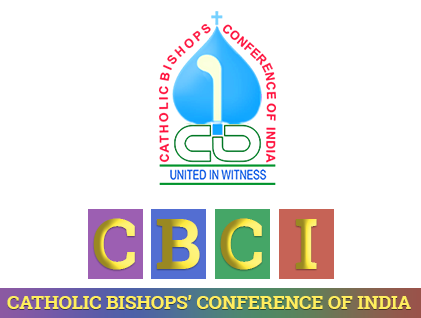By Jose Kavi
New Delhi, Dec 14, 2024: The Catholic bishops in India have expressed dismay over someone leaking to media information about their recent meeting with Christian members of parliament.
“The Catholic Bishops’ Conference of India (CBCI) is deeply disheartened by the breach of trust and the release of selective information to the media by an unnamed source regarding the recent informal gathering of Members of Parliament and religious leaders,” says a statement the prelates issued on December 13.
The bishops say the leak has “violated a unanimous understanding among those present at the “informal” meeting not to share press releases or photographs of the event.
“The selective dissemination of details has created confusion and misrepresented the nature of the discussions held,” the statement says.
According to a December 6 report in The Indian Express newspaper, some 20 MPs, mostly from the Opposition parties, attended the meeting chaired by CBCI president Archbishop Andrews Thazhath of Trichur.
It quoted an unnamed MP who attended the December 3 meeting in New Delhi to say the parliamentarians stressed the need for Christians to stand by the Muslim on the issue of the Waqf Bill that affects minority rights enshrined in the Indian Constitution.
They alerted the bishops that the Waqf Amendment Bill infringes on the constitutional values.
It should be opposed even though there are individual cases of property disputes, the report said.
One such case is the claim of the Kerala State Waqf Board over 404 acres of land in Ernakulam district’s Munambam coast — land inhabited for generations by some 600 Christian and Hindu families.
The report also said that the MPs urged the prelates to oppose “growing anti-Muslim hatred” among a section of Christians.
The bishops’ statement said the CBCI “stands firmly with the people of Munambam who have lived on and nurtured this land for generations.
”Our position on this issue is not rooted in religious identity but as a critical human rights concern. It is imperative to emphasize that this is not a Christian-Muslim issue but one of justice and human rights as enshrined in our Constitution. It is our firm belief that any action undermining the constitutional rights of individuals, irrespective of their religion, is unjust and must be opposed,” the statement added.
The bishops called for “a peaceful and fair resolution to the Munambam dispute, guided by constitutional principles and mutual respect. The CBCI remains committed to fostering harmony and standing with all marginalized communities in their fight for justice.”
Meanwhile, a Press Trust of India report said some MPs suggested the Church leaders should highlight “positive points, the important role being played by the community today” and “not just be only reactive to negative news.”
One suggestion was to convey to the government and the public that 3 out of 4 students studying in Christian institutions were other religious communities.
The PTI report also said that one MP stressed the need to stop “photo ops,” and take a stand to “call out those who are not protecting the Constitution.”












As a professional journalist of over five decades, I’d say the CBCI, and the CCBI, should organise their information nd communication systems. Regular, even quarterly, briefings will help create a rapport and understanding with national and regional media, specially in regions outside Kerala. These could cover developments and growth in the education nd medical sector, s well as responses to other developments. There is an absolutely scarcity, if not absence of dissemination of data. In turn this would have. trickle down impact and will empower dioceses to also build up strong communication systems. the CBCI secretary general could be formalised as the Official Spokesman.
Members of Parliament and legislatures, even if they have been elected with the support of the church in general or a diocesan bishop in particular, are still governed by party whips. Their assistance remains limited in the larger context, as has been seen in there failure to evolve political support against FCRA and anti conversion laws.
God bless the CBCI, CCBI and CRI.
Thank you.
Nobody has authorized the bishops to represent the entire Christian community in political matters. Issues like Munambam can be settled by political leaders of the community. In areas like Kerala there are Christians who are elected MPs and MLAs and all political parties ensure that the community is well represented in their parties.
The bishops have their own selfish agenda like continuous flow of foreign funds and income from schools and educational institutions. For this purpose they want the Christian community to support BJP and Sangh Parivar.
On December 6, about 20 Christians MPs who met the bishops stressed that the Christian community should stand by the Muslims on the issue of the Waqf Bill that affects minority rights enshrined in the Indian Constitution.
Why do the prelates need to hold clandestine meetings on any issues related to the Church or society? Why can’t they take the people of God into confidence and be transparent?